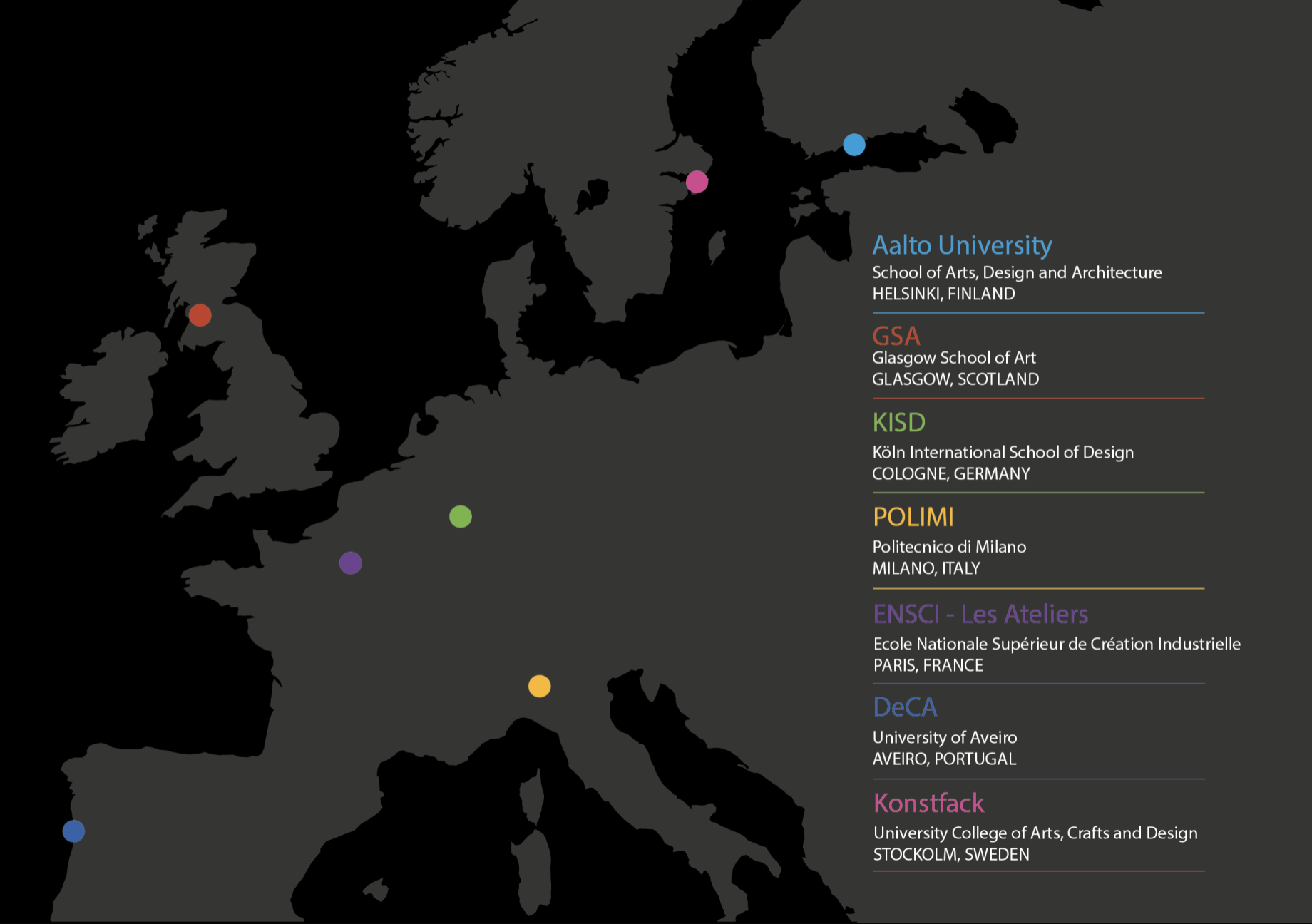Doctoral Program in Design
U.Porto / U. Aveiro / ID+
“The results of the program could have an important positive social and industrial impact on the Portuguese and international scene.”
(Foundation for Science and Technology course evaluation report, 2013)
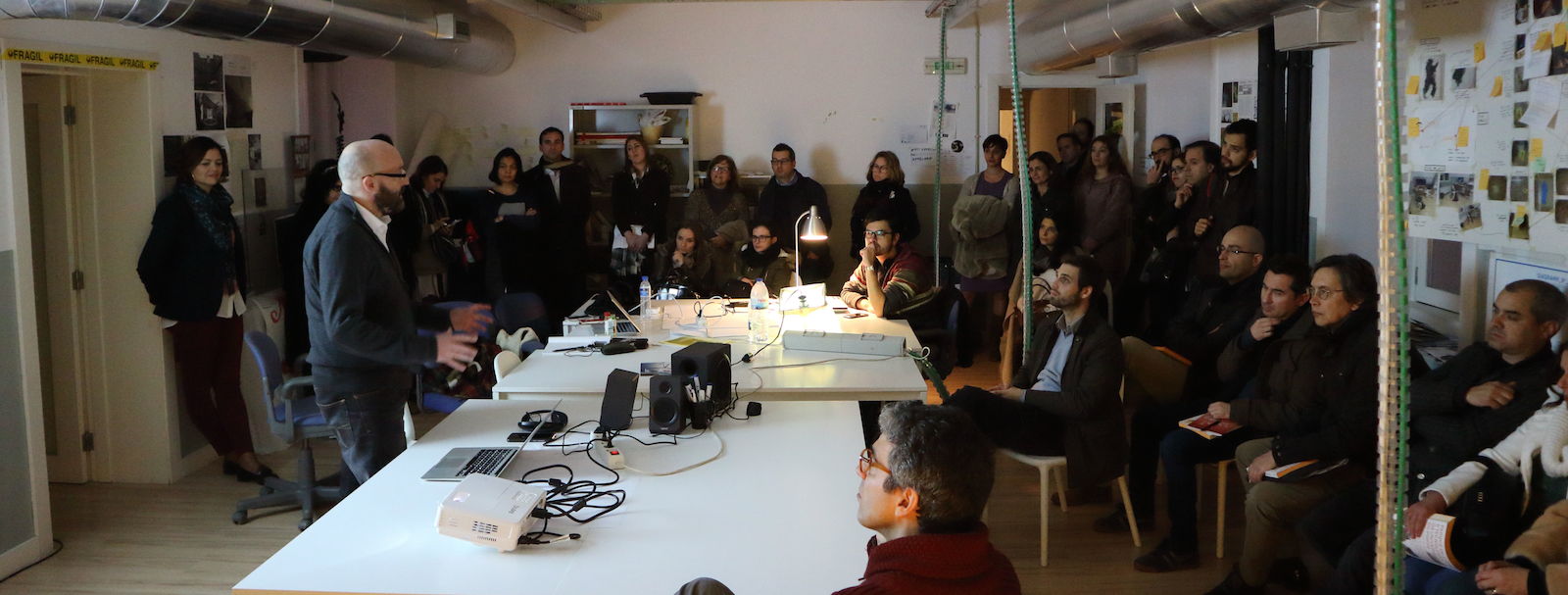
Founded in 2010, the Doctoral Program in Design is an interface Course between Design, Science and Entrepreneurship. PhDDesign is a partnership between the University of Porto and the University of Aveiro, in association with ID+.
The course vocation and scope are both regional and international, attracting students and alumni from Portugal, the UK, Mexico, India, Finland, Serbia, Spain, Turkey, Israel, Bosnia-Herzegovina, Netherlands and Brazil.
Course Mission:
To contribute to the development of Design Research as a scientific discipline.
To consolidate Design Research as a multi-disciplinary interface between Knowledge, Communication, Craft, Creativity and Development.
To legitimise and communicate Design-related practice and heritage.
To develop bold and critical models for the decipherment and resolution of contemporary challenges.
The UD International PhD in Design Conference series is organised annually by the course students. You can check the various editions here.
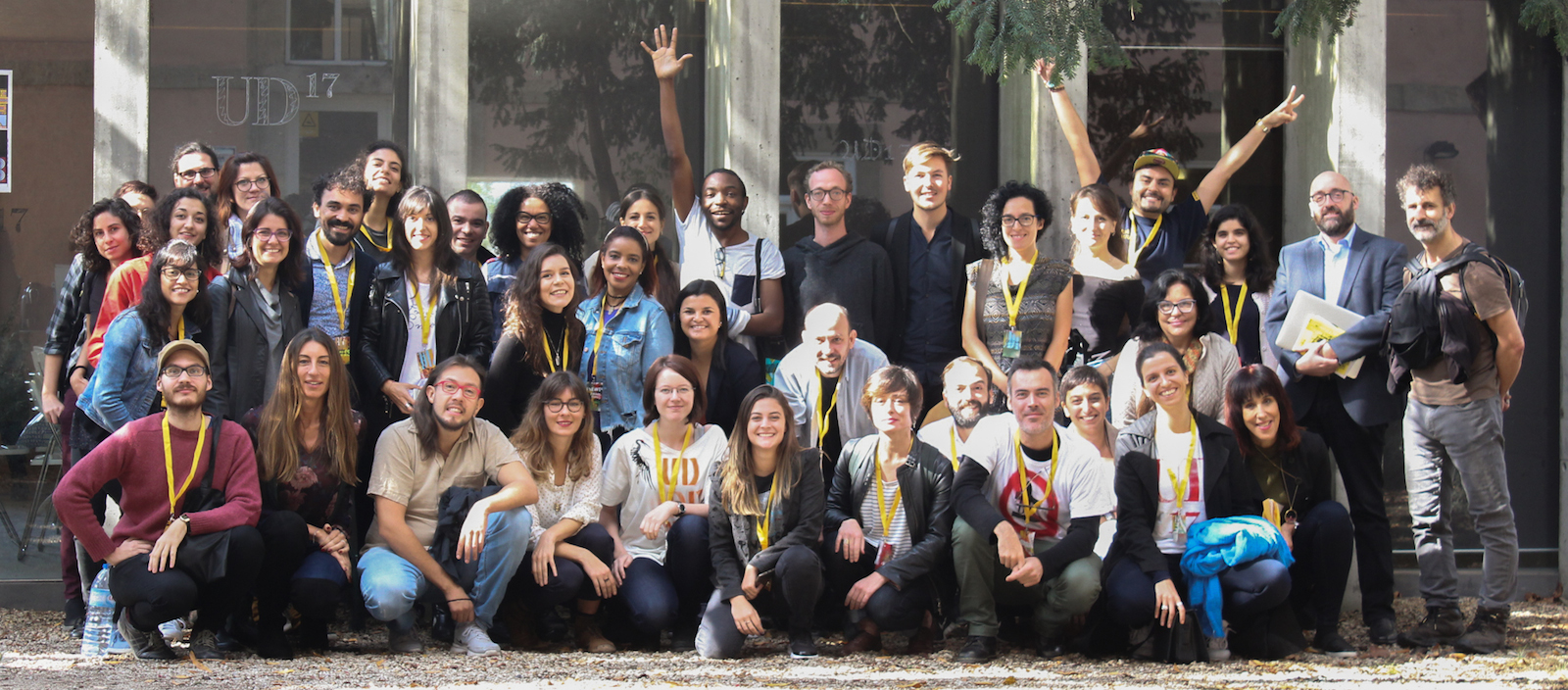
Design Research as an emerging discipline in its own right is undergoing international recognition: there is a clear need to root and implement it as a scientific and entrepreneurial interface. The PhD program in Design focuses on long-term contributions to a socio-cultural paradigm shift: redefining territories of knowledge, accessibility, solidarity, resourcefulness and involvement. The Course subscribes to a multi-disciplinary School of Applied Design Research and Practice; a meeting point of doctoral studies, post-doctoral research, joint entrepreneurial projects and exploratory ventures, with the shared goal of social, cultural and economic regeneration.
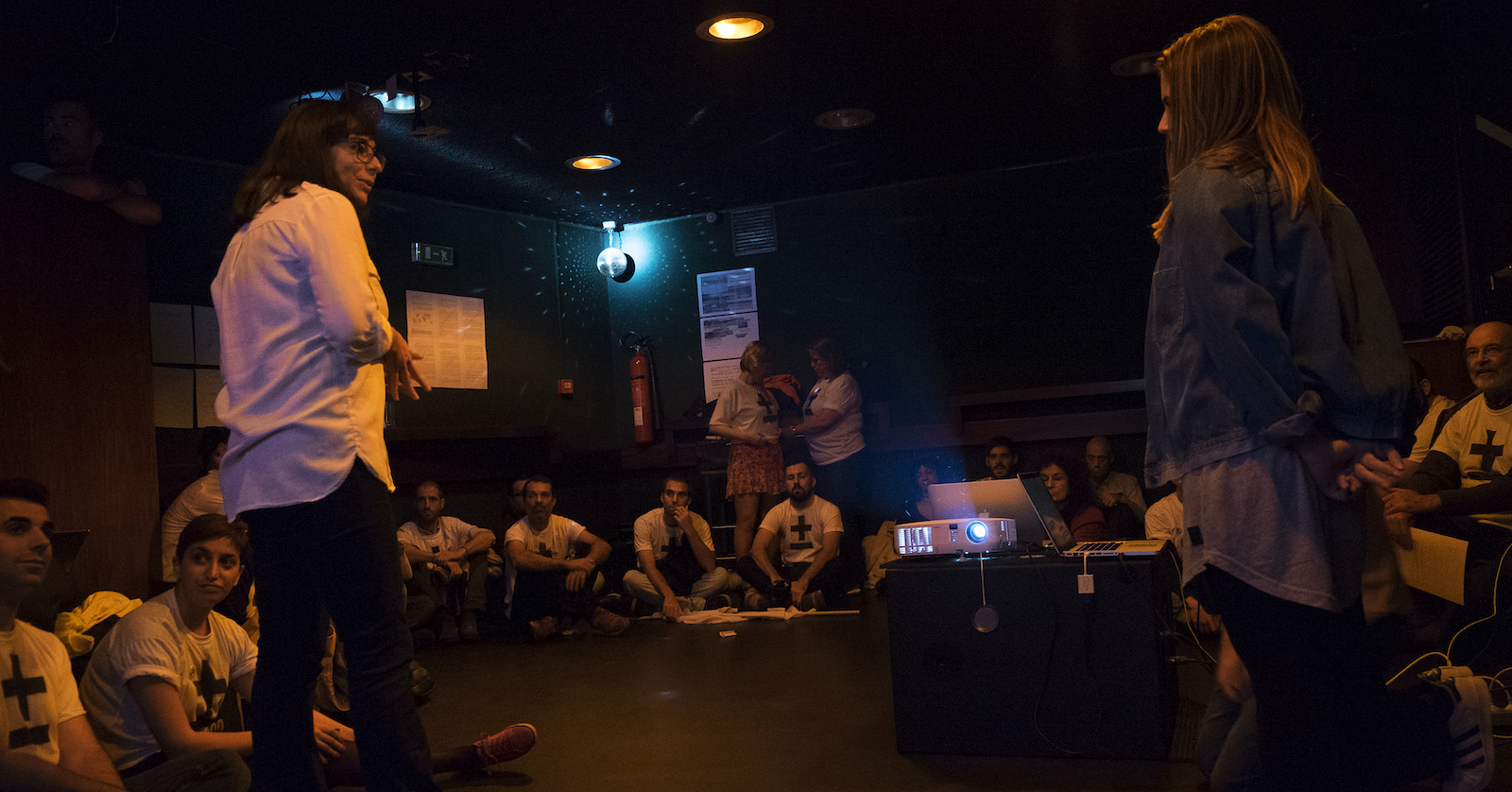
Portugal stands as a particularly apt environment for the flourishing of Design Research as a discipline weaving social, cultural and economic factors into a stronger fabric. Its widely acknowledged industrial capacities are not always matched by equal brand recognition; its social fabric has lacked a culture of narrative and involvement; and there are ample opportunities for channelling Design Practice itself onto territories of common knowledge and, ultimately, common good. While locally and regionally engaged, the Course offers an international research environment made up of students from multiple continents, partnerships with European and American Colleges, and a wealth of international visiting lecturers and advisors.
A sample of projects in progress in the Doctoral Program in Design:
Design: lost in translation? Building a shared understanding for Design in public policies among design professionals, researchers and entrepreneurs.
Rui Monteiro
(co-supervision: Kingston University, UK)
Raynaud’s phenomenon from a Design Perspective.
Isobel Taylor
(co-supervision: School of Engineering, U.Porto; partnership with Hospital Santo António)
Preserving Cultural Heritage of Urban Communities through Audiovisual Documentary: the urban hubs of Porto.
Clara Roberti
(co-supervision: School of Economics, U.Porto)
The City Made Up Of Shop Windows: a response to the disappearance or de-characterisation of traditional shops in central Porto.
Marta Nestor
(co-supervision: School of Humanities, U.Porto; partnership with Porto City Hall)
Ludic Systems as Mechanisms in the Treatment of Anorexia.
Viviane Peçaibes
(co-supervision: School of Biomedics, U.Porto)
What is That Strength? Protest Graphics in Portuguese demonstrations, 2011-2017.
Helena Sofia Silva
(co-supervision: Ephemera Archives of World Political History)
Visual Communication of Food Allergens on Food Labels: a qualitative assessment.
Ivo Fonseca
(partnership with the School of Medicine, University of Porto)
Design in Building Collaborative Networks for the Enhancement of Territories: the case of Mini Wheels.
Joana Ivónia
Design for the Communication of Breast Cancer: strategies for prevention, treatment and empowerment of patients and caregivers.
Renata Arezes
(partnership the with Breast Center, Centro Hospitalar de São João, Porto; partnership with the Education and Psychology Department, University of Aveiro).
Copyright and Author Rights: cultural protection or economic restriction?
Fátima São Simão
(co-supervision: School of Economics, U.Porto)
Firefighters’ Protective Equipment: performance-comfort dicotomy. an answer through Design.
Filipe Bento
(partnership with the Technological Center of the Textile and Clothing Industries of Portugal)
Design research for the development of a Medical Emergency Ambulance. Design as a symbolic qualifier in the design of complex systems/products.
José Augusto Coelho
Click HERE for the ongoing full list of PhDs supervised
or co-supervised by ID+ members as of May 2019.
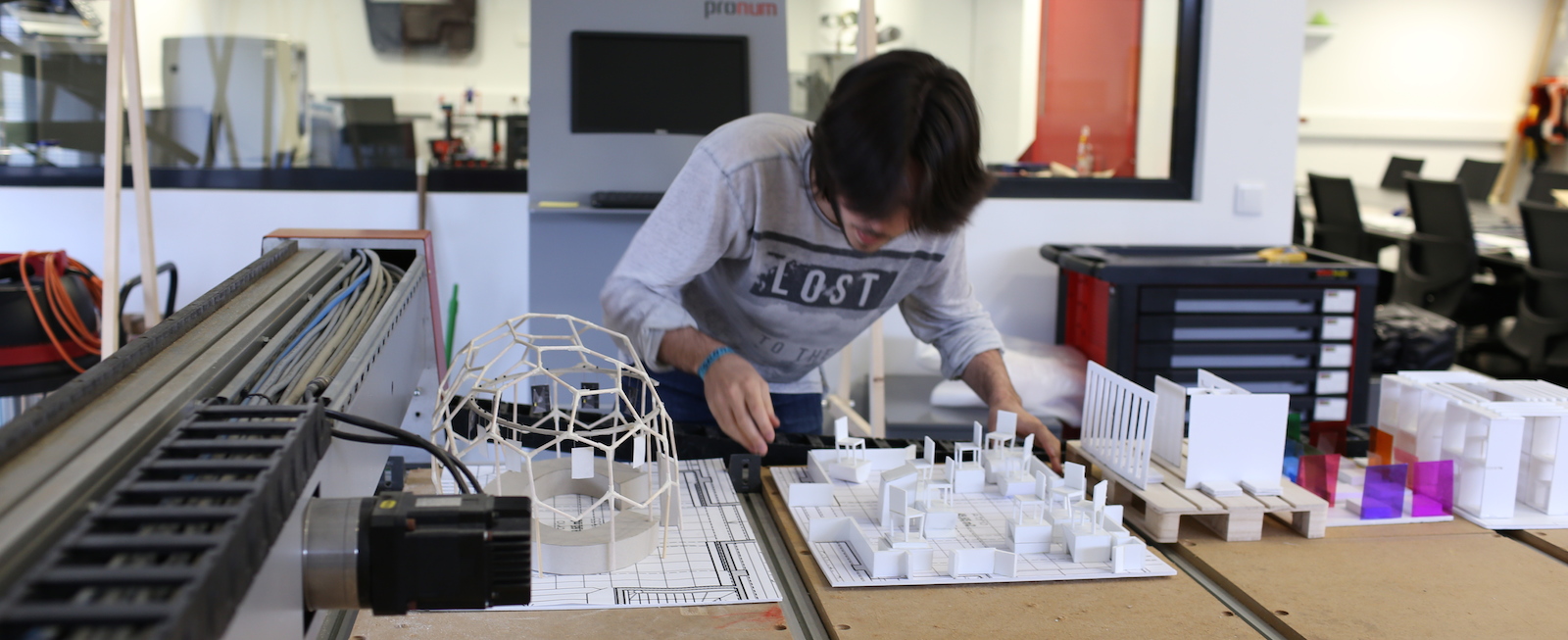
Masters Degrees
A multitude of Masters degrees is offered by the three ID+ host institutions for over a decade:
U.Porto
Masters in Product and Industrial Design
Masters in Image Design
Masters in Graphic Design and Editorial Projects
Masters in Art and Design for Public Space
IPCA
Masters in Digital Design
Masters in Product development and design
Masters in Illustration and Animation
U.Aveiro
Masters in Design
Masters in Product Design and Engineering
Additionally, the MEDes European Masters in offered. MEDes is a unique network of seven leading European design schools. During the five year programme, students are integrated into three design education systems and join a strong international community. These diverse experiences provide them with different approaches to design, multi-national perspectives and sensitivity to cultural differences. The MEDes course encourages and enables students to develop their creativity and imagination, their design research and investigation skills, and their professional executive practice.
A new member of the MEDes program, the Communication and Art Department (DeCA) of the University of Aveiro is one of the leading design education programs in Portugal. It is a relatively young school, but one on the rise. The school has a strong profile that is as focused on theory and processes of design as on technical skill. Emphasis is also given to conceptual thinking and strategic vision particularly in terms of business and entrepreneurship. The strength of the program lies in teaching students to think and be rooted in contemporary culture. The integration of contexts related to materials, technology, management, communication, and art creates the basis for an interdisciplinary design curriculum at UA.
